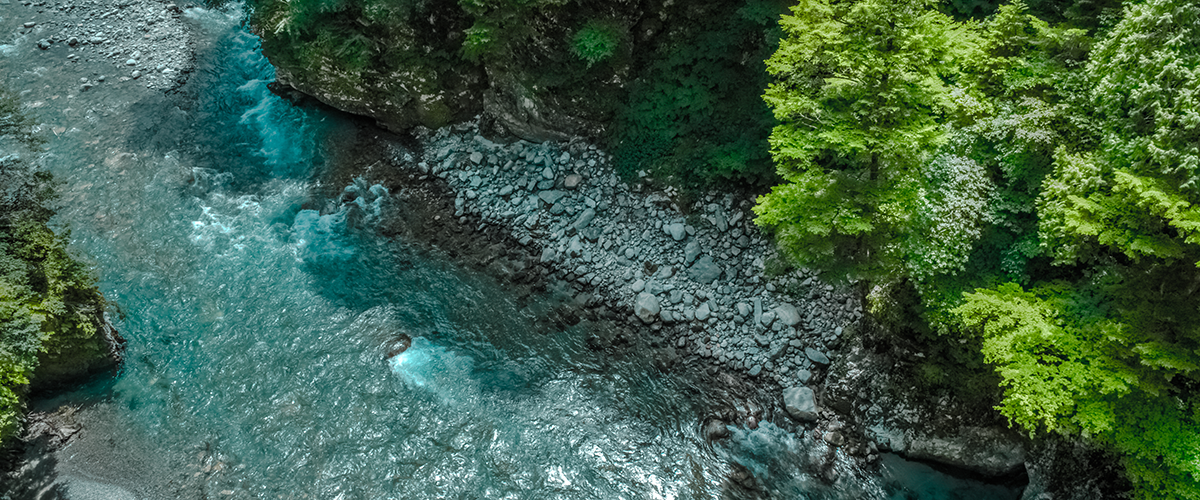
Emma S. Norman is Department Chair of the Native Environmental Science program at Northwest Indian College, located on Lummi Nation, Coast Salish Territory. Emma works alongside and with Indigenous communities to increase diversity in the STEM field and open up space for multiple ways of knowing. Her writing and teaching engage with critical geographies of space, specifically decolonizing borderlands and Indigenous water governance. She is the author of Governing Transboundary Water: Canada, the United States and Indigenous communities, which won the Julian Minghi award for best book in Political Geography in 2015. She is also the co-editor of Water without Borders: Canada, the United States and Shared Waters (with Alice Cohen and Karen Bakker), and Negotiating Water Governance: Why the Politics of Scale Matter (with Christina Cook and Alice Cohen), along with numerous articles and book chapters.
Dr. Norman earned her doctorate in Geography at the University of British Columbia (2009), where she worked closely with the Program of Water Governance throughout her graduate career. She also worked with the PoWG as a post-doctorate scholar focusing on issues of community-based water security. At UBC, Dr. Norman worked with Dr. Karen Bakker and Dr. Matthew Evenden (Geography) where she investigated the changing landscape of transboundary water governance issues along the Canada-US. border. She also holds degrees from Western Washington University (M.S. in Geography, 2001) and Colby College (B.A. in International Studies,1995).
Prior to her academic career, Emma served as a U.S. Peace Corps Volunteer in Malawi (1995-1997), where she worked as an environmental educator with the Department of Parks and Wildlife. She also served as Land Acquisition Specialist with the Conservancy of Southwest Florida (1997-1999) where she coordinated land-purchase agreements with the State of Florida for conservation purposes.
She resides with her family in Bellingham, Washington on the traditional territory of the Lummi Nation. In her free-time, she enjoys exploring the beautiful Salish Sea region, by running in wooded trails, exploring the inter-tidal zone and hiking in the mountains with her children.
To reach Dr. Norman, please email her at esnorman@mtu.edu or you can find her at http://www.mtu.edu/social-sciences/department/faculty/norman/
Publications
Norman, E.S., Dunn, G., Bakker, K. Allen, D.A., R. Cavalcanti de Albuquerque. 2013. Water Security Assessment: Integrating Governance and Freshwater Indicators. Water Resources Management. Volume 27, Issue 2 Page 535-551 DOI: 10.1007/s11269-012-0200-4
Norman, E.S. 2013. Who’s counting? Spatial politics, ecocolonisatin, and the politics of calculation in Boundary Bay, AREA (Royal Geographic Society). 45(2): 179-187 DOI: 10.1111/area.12000.
Norman, E.S. Water. Annotated Bibliography of Geography. Oxford University Press.
Norman, Emma S., Cohen, Alice Bakker, Karen (eds). 2013. Water without Borders?: Canada, the U.S. and Shared Waters. Toronto: University of Toronto Press.
Norman, E.S. Indigenous space, citizenry, and the cultural politics of transboundary water governance. United Nations Global Water Forum, Discussion Paper 1248 November 2012.
Norman, E.S., Bakker, K. & Cook, C. 2012, Water governance and the politics of scale: How thinking critically about scale can help create better water governance GWF Discussion Paper 1226, Global Water Forum, Canberra, Australia.
Norman, Emma Karen Bakker, and Christina Cook. 2012. Introduction to the Themed Section: Water Governance and the Politics of Scale. 5(1): 52-61.
Norman, Emma. 2012. Cultural Politics and Transboundary Resource Governance in the Salish Sea. Water Alternatives 5(1): 138-160.
Norman, Emma, Dunn, Gemma, Christina Cook, and Bakker, Karen. 2012. Working towards Water Security: Fostering Good Governance Practices through Adaptive Governance in K. Bakker and D. Allen (eds) Water Security Guidance Document. Vancouver: Program on Water Governance.
Dunn, Gemma, Norman, Emma, and Bakker, Karen. 2012. Water Security Status Indicators (WSSI) in K. Bakker and D. Allen (eds) Water Security Guidance Document. Vancouver: Program on Water Governance.
Norman, Emma, Cohen, Alice, Bakker, Karen (eds). June 2012. Hotspots and Collaboration: How problems can inspire innovative solutions. Water Without Borders? Briefing Notes. Vancouver: Program on Water Governance.
Norman, E.S. and D. Carr. 2010. World Summit on Sustainable Development in B. Warf (ed) Encyclopedia of Geography. London: Sage Publications. Vol. 6, pages 3132-3133 Available: http://www.sage-ereference.com/geography/Abstract_n1260.html
Carr, D.L. and E.S. Norman. 2010. United Nations. Environmental Summits in B. Warf (ed) Encyclopedia of Geography. London: Sage Publications. Vol. 6, pages 2906-2907 Available: http://www.sage-ereference.com/geography/Abstract_n1174.html
Lopez, A.C., E.S. Norman and D.L. Carr David. 2010. United Nations Conference on Environment and Development, Rio 1992. in B. Warf (ed) Encyclopedia of Geography. London: Sage Publications. Vol. 6 2905-2906. Available: http://www.sage-ereference.com/geography/Abstract_n1173.html
Emma Norman with Karen Bakker, Christina Cook, Gemma Dunn and Diana Allen. 2010. Water Security: A Primer (Policy Report). Vancouver, BC: UBC Program on Water Governance.
Norman, Emma S. and Bakker, K. 2009. Transgressing Scales: Transboundary Water Governance across the Canada – U.S. Border. Annals of the Association of American Geographers. 99 (1): 99-117. http://dx.doi.org/10.1080/00045600802317218
Norman, E. S., Carr D. 2009. Rio Summit in Kitchin R, Thrift N (eds) International Encyclopedia of Human Geography I, Volume 9, pp. 406-411. Oxford: Elsevier.
Norman, Emma S. March 2009. Navigating Bordered Geographies: Water Governance along the Canada-U.S. border. Unpublished Dissertation, Department of Geography, University of British Columbia. Advisors: Matthew Evenden and Karen Bakker; Committee Members: Trevor Barnes, Douglas Harris
Carr, David and Emma S. Norman. 2008. Global Civil Society? The Johannesburg World Summit on Sustainable Development. Geoforum 39(1): 358-71. DOI: 10.1016/j.geoforum.2007.07.006
